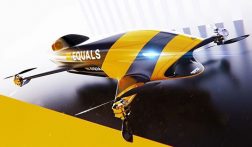Drones have received bad press recently with stories of them being flown around major airports and causing disruption.
But researchers from the University of SA and an Iraqi university are developing sensors, for smartphones and drones that could remotely monitor elderly people and help prevent falls.
The sensors detect abnormalities in people’s heart rate and temperature which can lead to falls and provide urgent first aid via a drone, if a fall occurs.
The researchers describe how a wearable device can monitor vital signs using a wireless sensor attached to the upper arm and send a message to an emergency call centre if physiological abnormalities or a fall are detected.
Dr Ali Al-Naji, part of the research team says:
“The system not only correctly measures heart rate and falls with 99% accuracy, but also identifies the elderly person’s location and delivers first aid much faster.”
The device consists of a microcontroller, two biosensors, a GPS module to track the location and a GSM module to send a notification to the smartphones of caregivers.
The second part includes a first aid package, a smartphone and a drone to deliver the package.
An advanced smartphone-based program that uses an intelligent autopilot, containing a destination waypoint for planning the path of a drone has also been designed as part of the project.
It is estimated that about 30% of adults over the age of 65 experience at least one fall a year, in many cases fracturing a hip, or sustaining head injuries.
In Australia fall-related treatment exceeds $600 million, but wouldn’t it be great if we could prevent falls from happening in the first place?






